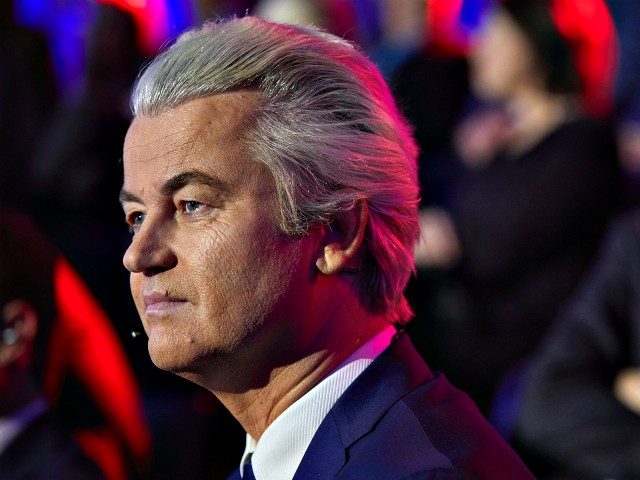Boris Johnson’s Lies Don’t Harm Him Because the UK’s Political System Is More Corrupt than He Is

All Global Research articles can be read in 51 languages by activating the “Translate Website” drop down menu on the top banner of our home page (Desktop version). Visit and follow us on Instagram at @crg_globalresearch.
***
Britain’s corporate media are suddenly awash with stories wondering whether, or to what extent, the UK’s prime minister is dishonest. Predictably in the midst of this, the BBC’s Laura Kuenssberg is still doing her determined best to act as media bodyguard to Boris Johnson.
In a lengthy article on the BBC’s website over the weekend, she presents a series of soothing alternatives to avoid conceding the self-evident: that Johnson is a serial liar. According to Kuenssberg, or at least those she chooses to quote (those, let us remember, who give her unfettered “access” to the corridors of power), he is a well-intentioned, unpredictable, sometimes hapless, “untamed political animal”. A rough diamond.
In Kuenssberg’s telling, Johnson’s increasingly obvious flaws are actually his strengths:
“Yet what’s suggested time and again is that the prime minister’s attitude to the truth and facts is not based on what is real and what is not, but is driven by what he wants to achieve in that moment – what he desires, rather than what he believes. And there is no question, that approach, coupled with an intense force of personality can be enormously effective.
“In his political career, Boris Johnson has time and again overturned the odds, and that’s a huge part of the reason why.”
The way Kuenssberg tells it, Johnson sounds exactly like someone you would want in your corner in a time of crisis. Not the narcissist creator of those crises, but the Nietzschean “Superman” who can solve them for you through sheer force of will and personality.
Lies piling up
Slightly less enamoured with Johnson than the BBC has been the liberal Guardian, Britain’s supposedly chief “opposition” newspaper to the ruling Conservative government. But the Guardian has been surprisingly late to this party too. Typical of its newly aggressive approach to Johnson was a piece published on Saturday by its columnist Jonathan Freedland, titled “Scandal upon scandal: the charge sheet that should have felled Johnson years ago”.
As this article rightly documents, Johnson is an inveterate dissembler, and one whose lies have been visibly piling up since he entered 10 Downing Street. His propensity to lie is not new. It was well-know to anyone who worked with him in his earlier career in journalism or when he was an aspiring politician. It is not the “scandals” that are new, it’s the media’s interest in documenting them that is.
And when the liar-in-chef is also the prime minister, those lies invariably end up masking high-level corruption, the kind of corruption that has the capacity to destroy lives – many lives.
So why are Johnson’s well-known deceptions only becoming a “mainstream” issue now – and why, in particular, is a liberal outlet like the Guardian picking up the baton on this matter so late in the day? As Freedland rightly observes, these scandals have been around for many years, so why wasn’t the Guardian on Johnson’s case from the outset, setting the agenda?
Or put another way, why has the drive to expose Johnson been led not by liberal journalists like Freedland but chiefly by a disillusioned old-school conservative worried about the damage Johnson is doing to his political tradition? Freedland is riding on the coat-tails of former Telegraph journalist Peter Oborne, who wrote a recent book on Johnson’s fabrications, The Assault on Truth. Further, Johnson’s deceptions have gone viral not because of the efforts of the Guardian but because of a video compilation on social media of some of Johnson’s biggest whoppers by lawyer and independent journalist Peter Stefanovic.
This shocking compilation of Boris Johnson misleading Parliament is now on 6.2 million views yet UK media continues to turn a blind eye
Help me send it to 7 million@BBCNews @itvnews @Channel4News @SkyNews can’t ignore PM’s shameless conduct forever! pic.twitter.com/PlvEkEij1V
— Peter Stefanovic (@PeterStefanovi2) March 30, 2021
Politics rigged
Part of the answer, of course, is that until recently the Guardian, along with the rest of the corporate media, had a much more pressing task than holding Britain’s prime minister to account for lies – and the corruption they obscure – that have drained the Treasury of the nation’s wealth, redirecting it towards a bunch of Tory donors, and subsequently contributed to at least a proportion of Covid-19 deaths.
The Guardian was preoccupied with making sure that Johnson was not replaced by an opposition leader who spoke, for the first time in more than a generation, about the need for wealth redistribution and a fairer society.
On the political scales weighing what was most beneficial for the country, it was far more important to the Guardian to keep then-Labour leader Jeremy Corbyn and his democratic socialist agenda out of Downing Street than make sure Britain was run in accordance with the rule of law, let alone according to the principles of fairness and decency.
The Guardian's relentless attacks on Corbyn continue. We've compiled a list of over a 100 Guardian articles attacking Corbyn (a small sample). Take a look! (And if you haven't already, it really is time to #DumpTheGuardian.) https://t.co/zQDRqe1iyP
— FiveFilters.org ⏳ (@fivefilters) September 16, 2018
Now with Corbyn long gone, the political conditions to take on Johnson are more favourable. Covid-19 cases in the UK have plummeted, freeing up a little space on front pages for other matters. And Corbyn’s successor, Keir Starmer, has used the past year to prove over and over again to the media that he has been scrupulous about purging socialism from the Labour party.
We are back to the familiar and reassuring days of having two main parties that will not threaten the establishment. One, the Labour party, will leave the establishment’s power and wealth untouched, but do so in a way that makes Britain once again look like a properly run country, conferring greater legitimacy on UK Plc. The other, the Conservative party, will do even better by the establishment, further enriching it with an unapologetic crony capitalism, even if that risks over the longer term provoking a popular backlash that may prove harder to defuse than the Corbyn one did.
For the time being at least, the elite prospers either way. The bottom line, for the establishment, is that the political system is once again rigged in its favour, whoever wins the next election. The establishment can risk making Johnson vulnerable only because the establishment interests he represents are no longer vulnerable.
Blame the voters
But for liberal media like the Guardian, the campaign to hold Johnson to account is potentially treacherous. Once the prime minister’s serial lying is exposed and the people informed of what is going on, according to traditional liberal thinking, his popularity should wane. Once the people understand he is a conman, they will want to be rid of him. That should be all the more inevitable, if, as the Guardian contends, Starmer is an obviously safer and more honest pair of hands.



